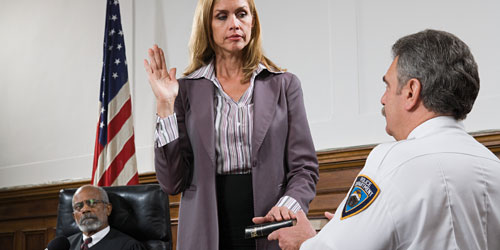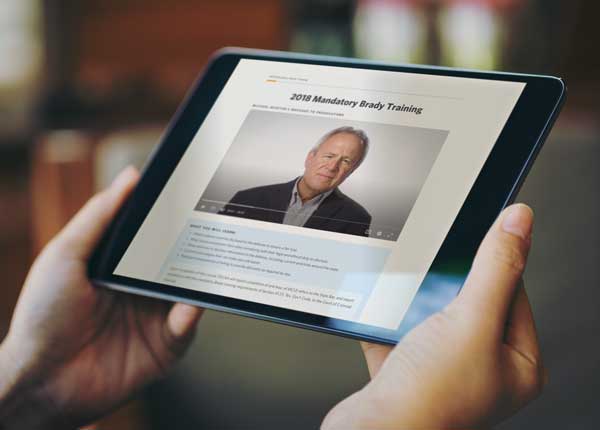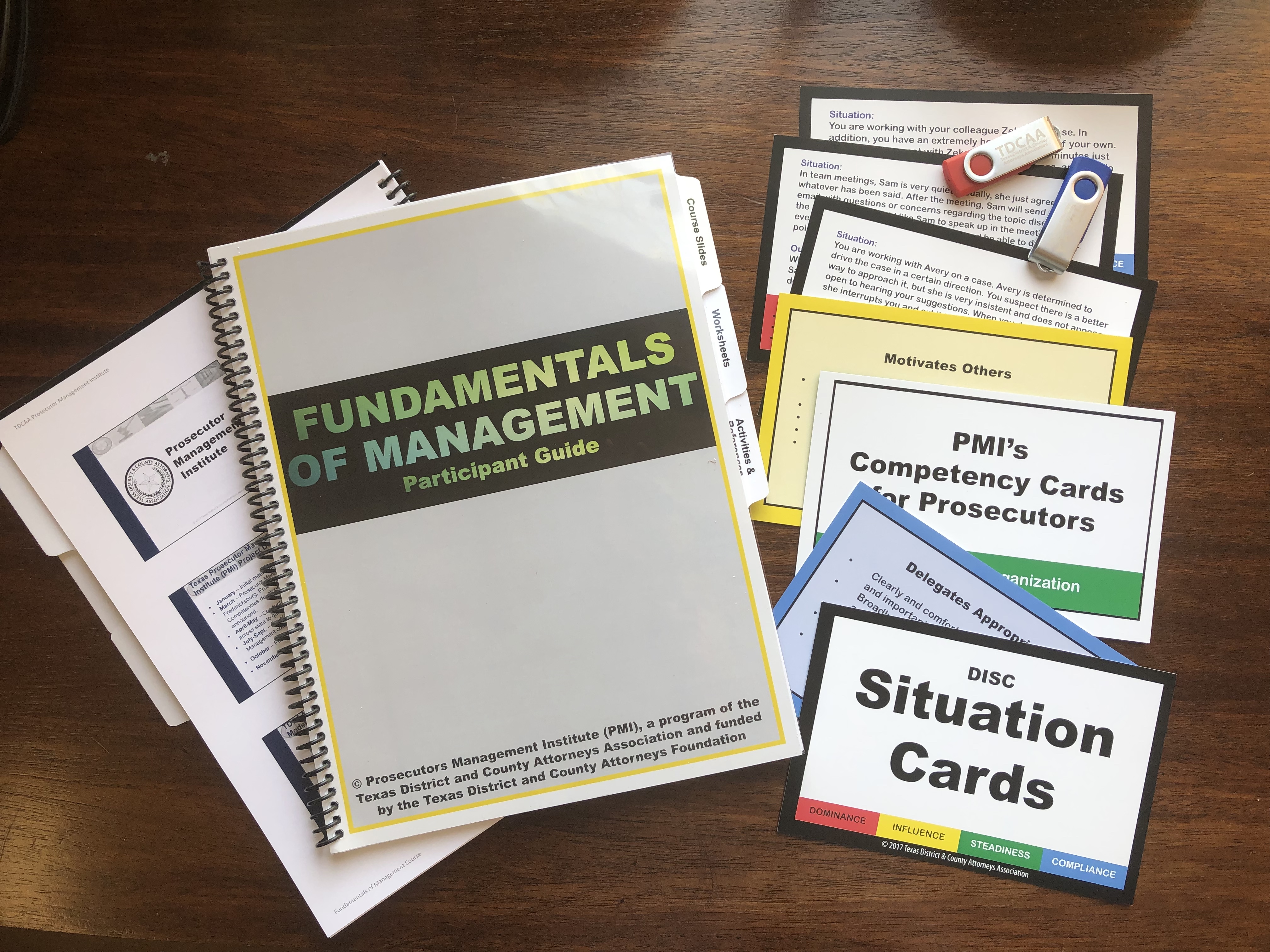God bless the good people of Uvalde.
Primary run-off results
There were only two November ballot spots up for grabs in this week’s run-offs. In Panola County, incumbent CDA Danny Buck Davidson (R) fended off a challenge from local criminal defense lawyer Tim Cariker; there is no general election opponent, so Davidson will retain his office for another four years. And in Tarrant County, the general election race to succeed retiring incumbent CDA Sharen Wilson will be between former assistant Tiffany Burks (D) and county court judge Phil Sorrells (R), who defeated State Rep. Matt Krause (R) in a run-off.
In November, there will be seven criminal district attorney races on the general election ballot (Bexar, Dallas, Galveston, Hays, Hidalgo, McLennan, and Tarrant). For a full list of the candidates in those races, as well as the other uncontested prosecutor seats on the ballot this fall, please click HERE.
Bar ethics rules
The State Bar’s Committee on Disciplinary Rules & Referenda meets again on Wednesday, June 1, at 10:00 a.m. The committee’s sole action item is discussion and possible action on proposed Rule 3.09 (special responsibilities of a prosecutor), which we have been following for you these past few months. The meeting will be held by Zoom—a link for which is available in the agenda now available HERE—so if you’re interested, feel free to tune in and watch. You may also still be able to submit input ahead of that meeting through the committee’s participation webpage.
Judicial compensation
The Judicial Compensation Commission (JCC: https://www.txcourts.gov/jcc/) met by Zoom on May 12 to start its biennial process of suggesting raises for the judiciary. On the heels of the commission’s success two sessions ago in convincing the legislature to adopt a graduated salary structure for the judges, its strategy this session is a simple across-the-board raise of 10–20 percent. While it is true that the benchmark salary ($140,000) hasn’t been increased since 2013 and that inflation is now rampant, color us skeptical that the next legislature will be eager to double-down on its predecessor’s generous—if unequal—raises given back in 2019.
That said, the JCC members did hear about the “parity gap” that may deter an experienced DA or judge from running for the opposite position. Furthermore, a new commission member noted that one of the first calls he received upon being appointed to the JCC was from a nearby prosecutor who congratulated him on the new gig and then immediately asked what he was going to do to remedy the potential salary disparity between a DA and a statutory county court judge who run for the same district court bench. (To whomever that was: Good job! LOL) It’s too early to say at this point what (if anything) the JCC will recommend on that front, but fixing that issue certainly seems to us like an easier lift than a massive across-the-board raise. Things are still early, though.
For those interested in more information on this front, you can access the following resources online:
- Archived video of the JCC meeting (90 minutes long)
- PowerPoint on the history of judicial compensation presented at that meeting
- PDF report on judicial salaries, demographics, and turnover
The JCC intends to hold a public hearing later this summer at a yet-to-be-determined date. TDCAA’s current president, Galveston CDA Jack Roady, has already appointed a 12-member Compensation Committee to work on these issues during this interim and the following legislative session, so they will be ready to present testimony at that hearing when it happens.
Judicial branch recap for 2021
The Office of Court Administration (OCA) released its 2021 Annual Statistical Report a few weeks ago. We tweeted a popular thread of charts and graphs from the report earlier this month (start HERE if you are curious), but for those who prefer prose to pictures, here are some highlights:
- Misdemeanor criminal filings continue to decrease, to the point that misdemeanor filings in 2021 were the lowest since 1985.
- The only misdemeanor categories to increase in filings over the past five years were assault and DWI-1st offenses.
- The only felony categories to increase in filings during the pandemic years of 2022–21 were capital murder, aggravated assault/attempted murder, family violence felonies, and auto theft felonies.
- Drug- and alcohol-related offenses constitute one-third of both misdemeanor and felony filings.
- Traffic and parking cases were filed at the lowest numbers since 1980.
- After peaking in 2007, the number of juvenile cases has fallen to the lowest level since 1993.
- CPS cases fell for the third year in a row to the lowest level since 2014.
- District courts’ pending caseload increased by five percent in 2021, while county courts’ pending caseloads held steady.
- State spending on the judicial branch accounts for less than 0.5 percent of the annual state budget.
For a deeper dive—including specific court-level data—read the full report at the link above. And kudos to OCA’s new administrative director, Megan LaVoie, and her entire staff for putting together such an informative report!
Committee news
Now that the primaries are over, interim committee work is picking up speed. Here are some highlights from the past month.
The House Licensing & Administrative Procedures Committee considered the problems that illicit massage businesses present for the reduction of human trafficking (but anyone who read our cover story from the March–April 2022 issue of The Texas Prosecutor would already be in the know about that topic) … the Senate State Affairs Committee also took testimony on human trafficking from a panel of state agency witnesses, one of whom noted that statewide, more than 1,200 arrests were made for the new state jail felony offense of solicitation of prostitution in the first seven months of its existence (eff. 9/1/21) … and the House Judiciary & Civil Jurisprudence Committee heard from Texas Supreme Court Chief Justice Nathan Hecht, whose wide-ranging testimony included a discussion of the security of the court’s draft opinions in the wake of the leak of a certain SCOTUS draft opinion. The gist of his testimony was that the justices have been telling their law clerks that any similar leak in Texas would violate PC §39.06 (Misuse of Official Information), but we are not so sure—that crime applies only if there is an economic benefit or harm involved, and to our knowledge, none has been established in the SCOTUS case. Don’t be surprised if that “loophole” generates legislation next session, although legislators may discover that there are good reasons why the current law is so limited.
We have one other note to pass along, and it comes from an unlikely source: the Senate Water, Agriculture, & Rural Affairs Committee. That committee heard testimony on the challenges of cattle theft, but a portion of that discussion including talk of “liberal DAs who don’t want to enforce any laws” (our paraphrase) and what is to be done about it. (This did not seem to be in relation to any specific cattle-related crimes, but it’s the interim, so they can wander where they please at this stage.) Specifically, the committee discussed a fix to the habeas law that gives defendants the ability to file writs in other counties—something currently being litigated before the CCA in In re State ex rel. Brent Smith (WR-93,354-02), in which the Kinney County Attorney is challenging the authority of a Travis County district court to hear writs arising from Operation Lone Star’s criminal trespass cases pending in Kinney County. You can expect to see legislation on that next session. Note also that a Texas & Southwestern Cattle Raisers Association special ranger later testified that the Lege should increase penalties for theft of agricultural pharmaceuticals (because, why not?), and he further suggested a law to mandate training for all cops, prosecutors, and judges on the impact of cattle-related crimes on producers and dealers. So, it looks like some of you might be spending time in the Senate Ag committee next session if you support or oppose any of those ideas!
Upcoming hearings
Interim charges currently posted for hearings in June include (click on the link for the full notice):
Tuesday, June 7
House Licensing & Administrative Procedures
10:00 a.m., Room E2.012
Charge #2: Strengthen and enforce laws to reduce illegal gaming and game rooms, including 8-liners; explore how the comptroller or other state agencies can assist local law enforcement agencies with those investigations. (Invited testimony only, to include Potter County CA Scott Brumley.)
Tuesday, June 28
Senate Finance
10:00 a.m., Room E1.036
Charge #1 (use of federal COVID-19 relief funds) and Charge #12 (state forensic and civil mental health services) (Invited and public testimony.)
There are bound to be more hearings to review issues surrounding the recent school massacre in Uvalde, but none of those have been posted yet.
TDCAA training update
Registration is open for our July Prosecutor Trial Skills Course. If you are early in your prosecution career—or simply looking for a post-pandemic refresher—this course is for you, but attendance is limited to the first 170 who register. We are already two-thirds of the way to that maximum, so don’t delay! To register or access more information, click HERE.
Scattershooting
Here are a few interesting stories from this past month that you might’ve missed:
- “Most Texans support legalizing pot, but Texas Gov. Greg Abbott says no” (Dallas Morning News)
- “Long-planned changes to Texas foster care system have ‘sputtered,’ senators say” (Dallas Morning News)
- “The FBI’s Next Set of Crime Data Is Going to Be a Big Mess” (The Atlantic)
- “Trump’s criminal justice reform bill becomes persona non grata among GOPers” (Politico)
Quotes of the Month
“What’s now clear, two years after George Floyd’s murder, is that the support for criminal-justice reform was a mile wide and an inch deep.”
—David A. Graham, reporter for The Atlantic, in a tweet sharing his recent article, “How Criminal-Justice Reform Fell Apart.”
“[It’s] the digital equivalent of going down the street to a strip club filled with 15-year-olds.”
—Leah Plunkett, an assistant dean at Harvard Law School and faculty associate at Harvard’s Berkman Klein Center for Internet & Society, quoted in a Forbes article about children who are offered money by adults for sexualized behavior during TikTok livestreams.
“It’s got to be very discouraging to people who are not immersed in politics, who are just looking for someone who’s making sense and talking about key issues in their lives … and they find candidates swinging from the chandeliers on either fringe of the party spectrum.”
—Cal Jillson, political scientist at SMU, in an article about the impact of redistricting on the latest legislative and congressional elections.
“I really don’t care as long as he’s fighting the fight.”
—Chris Byrd, member of the State Republican Executive Committee, when asked at a campaign event about the various allegations of personal, legal, and ethical malfeasance that have plagued incumbent AG Ken Paxton’s time in office. [Paxton won his primary run-off handily this week.]
“I’m just really sad. I don’t understand why people think this can’t happen to them.”
—John Barnes, a former Santa Fe ISD school resource officer who was wounded in that 2018 school shooting, when asked what went through his mind when he heard about this week’s Uvalde school massacre.
###



